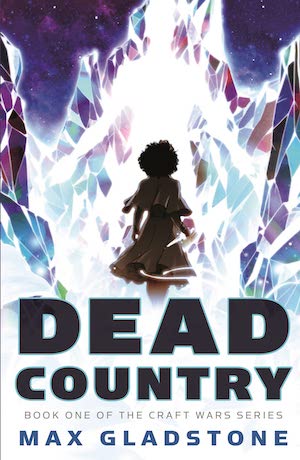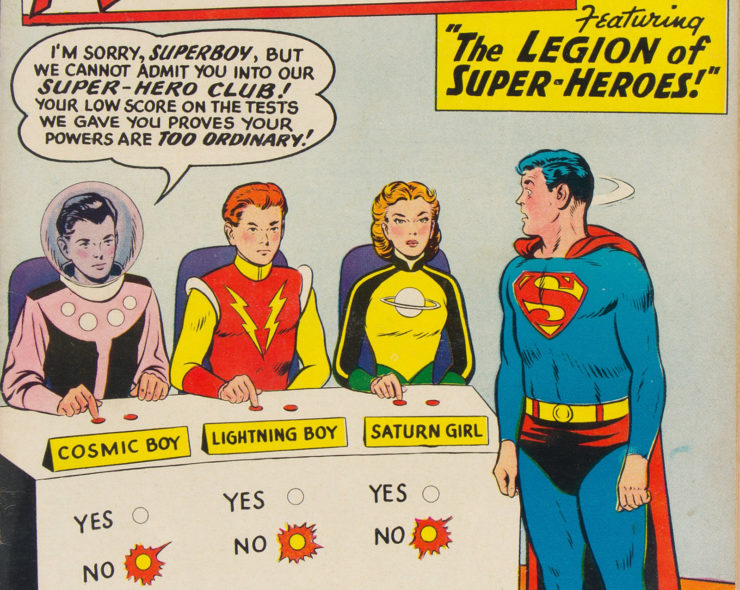DC Comics’ Legion of Super-Heroes (LSH) series is notable because it is set in the future (generally but not always a thousand years from the present), not the present or near present. It often ventures into space opera territory. The Legion’s teens have a high death rate, even though the team debuted in times when permanent protagonist deaths were close to unknown. It’s not your common, garden variety superhero series. For me, one peculiarity has always stood out: Legion Tryouts.
Unlike most superhero teams, the Legion would hold open auditions where would-be heroes could demonstrate their powers in hopes of qualifying for membership. While unusual, this rite served a number of useful functions. Tryouts established community ties. Tryouts potentially drew the Legion’s attention to extraordinary individuals whom the Legion might otherwise have overlooked. More importantly, tryouts provided a pretext to be incredibly condescending to individuals whose services were deemed surplus to the Legion’s need.
Most rejects vanished from the narrative, never to be seen again. In the case of Polar Boy, Night Girl, Stone Boy, Fire Lad, and Chlorophyll Kid, rejection inspired determination. If they could not join the Legion proper, then they would form their own, initially unsanctioned, Legion of Substitute Heroes (the “Subs” for short), and fight evil in their own, very special way.
In the Legion of Super-heroes’ defense, their rejections of the founding Subs were not entirely unjustified.
- Polar Boy ostensibly lacked fine control over his ability to induce extreme cold.
- Fire Lad’s allergies made his ability to breathe fire an active threat to those around him.
- While Stone Boy could transform to invulnerable stone, invulnerability was hardly uncommon amongst LSH members; also, this came at the cost of a trance-like state.
- Night Girl’s superstrength was likewise a common power amongst LSH members; hers had the drawback that her powers only worked in dark of night because Science.
- Finally, while there are many circumstances in which Chlorophyll Kid’s ability to accelerate plant growth could be useful, fighting evil did not appear to be one of them. How many plant-based threats could there possibly be? And out of those, how many would become less dangerous if induced to grow faster?
Buy the Book


Dead Country
The Subs possessed unusual abilities, steadfast determination to do good, and comprehensive inability to admit their manifest unsuitability for their preferred careers. Depending on the writer of the comic issue, the results could comedic, but on the whole, the Subs were far more successful than you might expect from a biological refrigerator, an involuntary pyromaniac, someone who can be depowered by a sun lamp, coma boy, and the humanoid analog of Miracle-Gro®.
There are many reasons for the Subs’ success beyond sympathetic writers. Heart may not be the ultimate power, but caring about your job never hurts. Also, the utility of showing up at all cannot be understated. Mon El, Duplicate Boy, and Brainiac Five each have stupendous abilities that eclipse all of the Subs together, but that won’t matter if Mon El, Duplicate Boy, and Brainiac Five are nowhere to be seen. Finally, the Subs were highly motivated to discover unintuitive ways to apply their special abilities to the problems at hand.
When you get down to it, anyone who is super-fast, invulnerable, and/or the smartest person on the planet probably won’t have too hard a time fighting evil. Setting out to make the world a better place when your primary ability is (to quote Ty Templeton) the power to stand very, very still for a surprising long time takes moxie. Doing one’s best with C-grade abilities is inspirational, which is why I always enjoyed the Subs.
In the words of fanfiction author Musty181, four-time Hugo finalist, prolific book reviewer, and perennial Darwin Award nominee James Davis Nicoll “looks like a default mii with glasses.” His work has appeared in Interzone, Publishers Weekly and Romantic Times as well as on his own websites, James Nicoll Reviews (where he is assisted by editor Karen Lofstrom and web person Adrienne L. Travis) and the 2021 and 2022 Aurora Award finalist Young People Read Old SFF (where he is assisted by web person Adrienne L. Travis). His Patreon can be found here.










